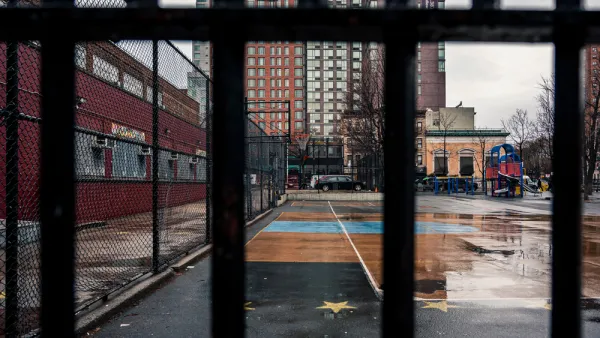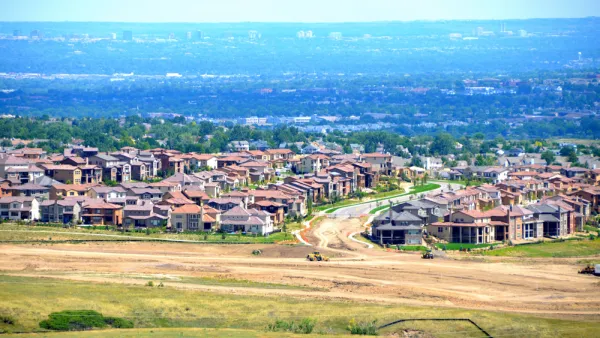A familiar argument of suburban apologists is that people prefer suburban environments over urban environments. Joe Cortright reminds us, however, that "revealed preference" doesn't tell the whole story.

"One of the chief arguments in favor of the suburbs is simply that that is where millions and millions of people actually live," according to an article by Joe Cortright that sets out to debunk that claim.
The counterargument, of course, is that people can only choose from among the options presented to them. And the options for most people are not evenly split between cities and suburbs, for a variety of reasons, including the subsidization of highways and parking, school policies, and the continuing legacies of racism, redlining, and segregation. One of the biggest reasons, of course, is restrictive zoning, which prohibits the construction of new urban neighborhoods all over the country.
Cortright wants to consider whether zoning really actually acts as a constraint on more compact, urban housing by turning to the work of Jonathan Levine and detailed in the book Zoned Out. Cortright wants to get to the bottom of the issue about whether or not there is pent up demand in the market for walkable urban places, and then whether land use regulations make it impossible to build the supply to meet that demand. The point made originally by Levine and explained here again by Cortright: it's true that in some places there is a shortage of cities and an overabundance of suburban-style house. In other metropolitan areas, there's a shortage of all kinds of housing.
FULL STORY: The myth of revealed preference for suburbs

Analysis: Cybertruck Fatality Rate Far Exceeds That of Ford Pinto
The Tesla Cybertruck was recalled seven times last year.

National Parks Layoffs Will Cause Communities to Lose Billions
Thousands of essential park workers were laid off this week, just before the busy spring break season.

Retro-silient?: America’s First “Eco-burb,” The Woodlands Turns 50
A master-planned community north of Houston offers lessons on green infrastructure and resilient design, but falls short of its founder’s lofty affordability and walkability goals.

Test News Post 1
This is a summary

Analysis: Cybertruck Fatality Rate Far Exceeds That of Ford Pinto
The Tesla Cybertruck was recalled seven times last year.

Test News Headline 46
Test for the image on the front page.
Urban Design for Planners 1: Software Tools
This six-course series explores essential urban design concepts using open source software and equips planners with the tools they need to participate fully in the urban design process.
Planning for Universal Design
Learn the tools for implementing Universal Design in planning regulations.
EMC Planning Group, Inc.
Planetizen
Planetizen
Mpact (formerly Rail~Volution)
Great Falls Development Authority, Inc.
HUDs Office of Policy Development and Research
NYU Wagner Graduate School of Public Service




























